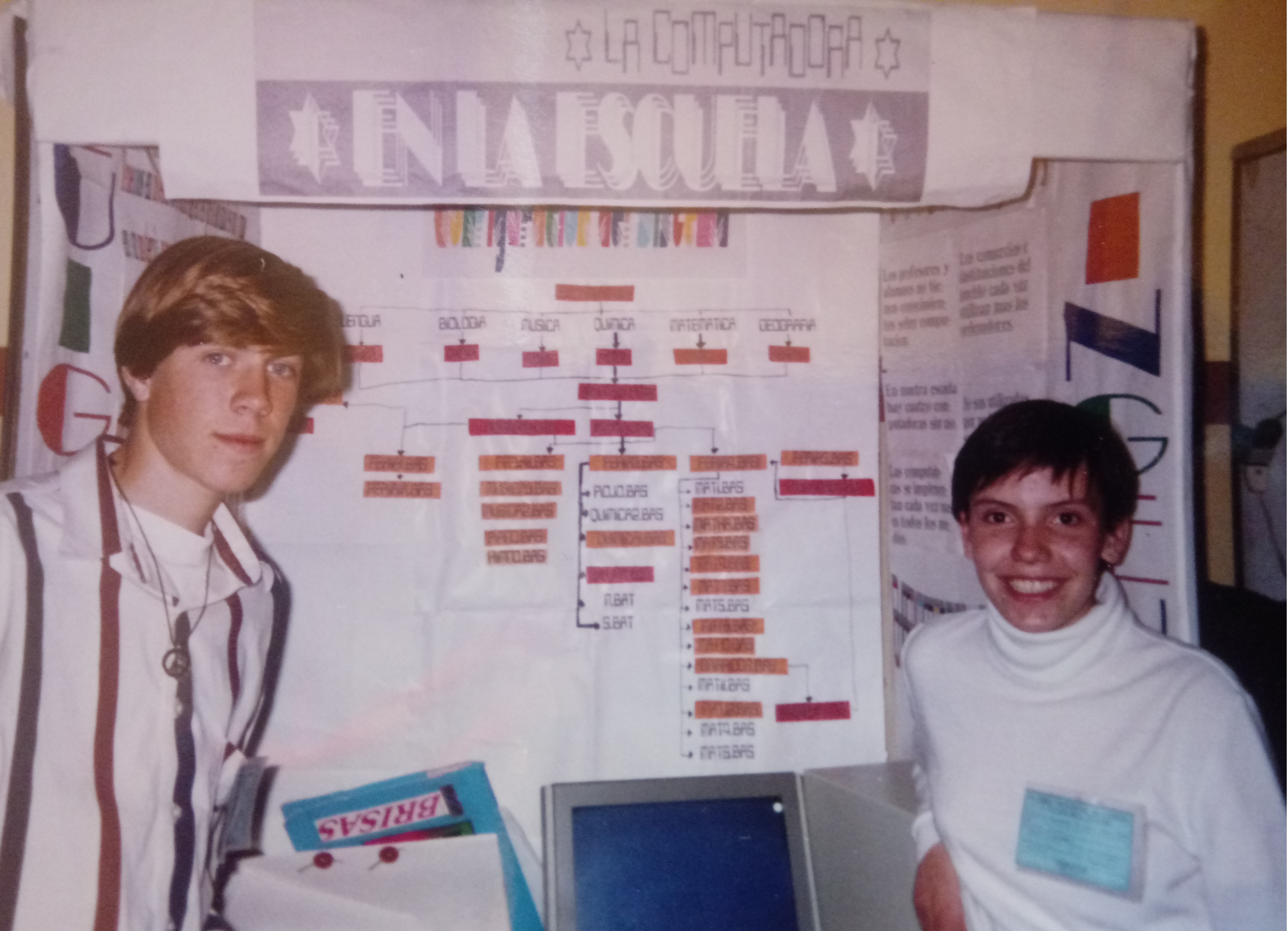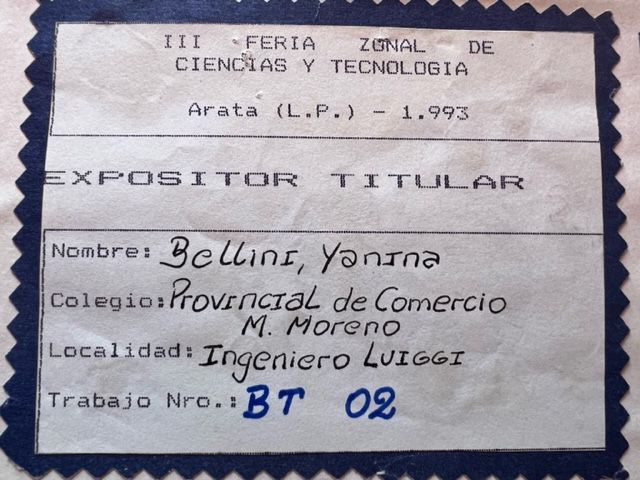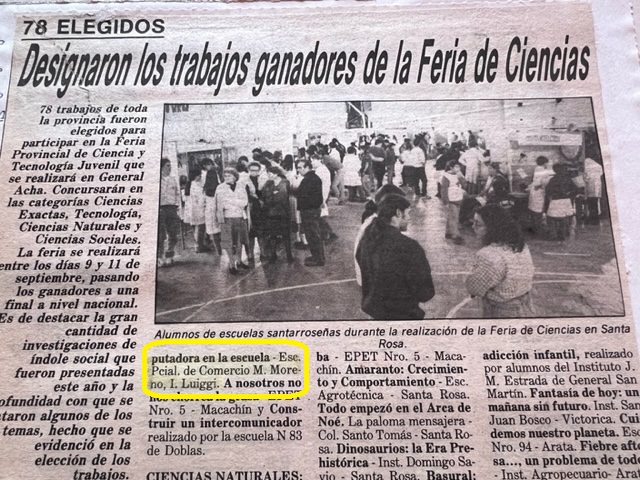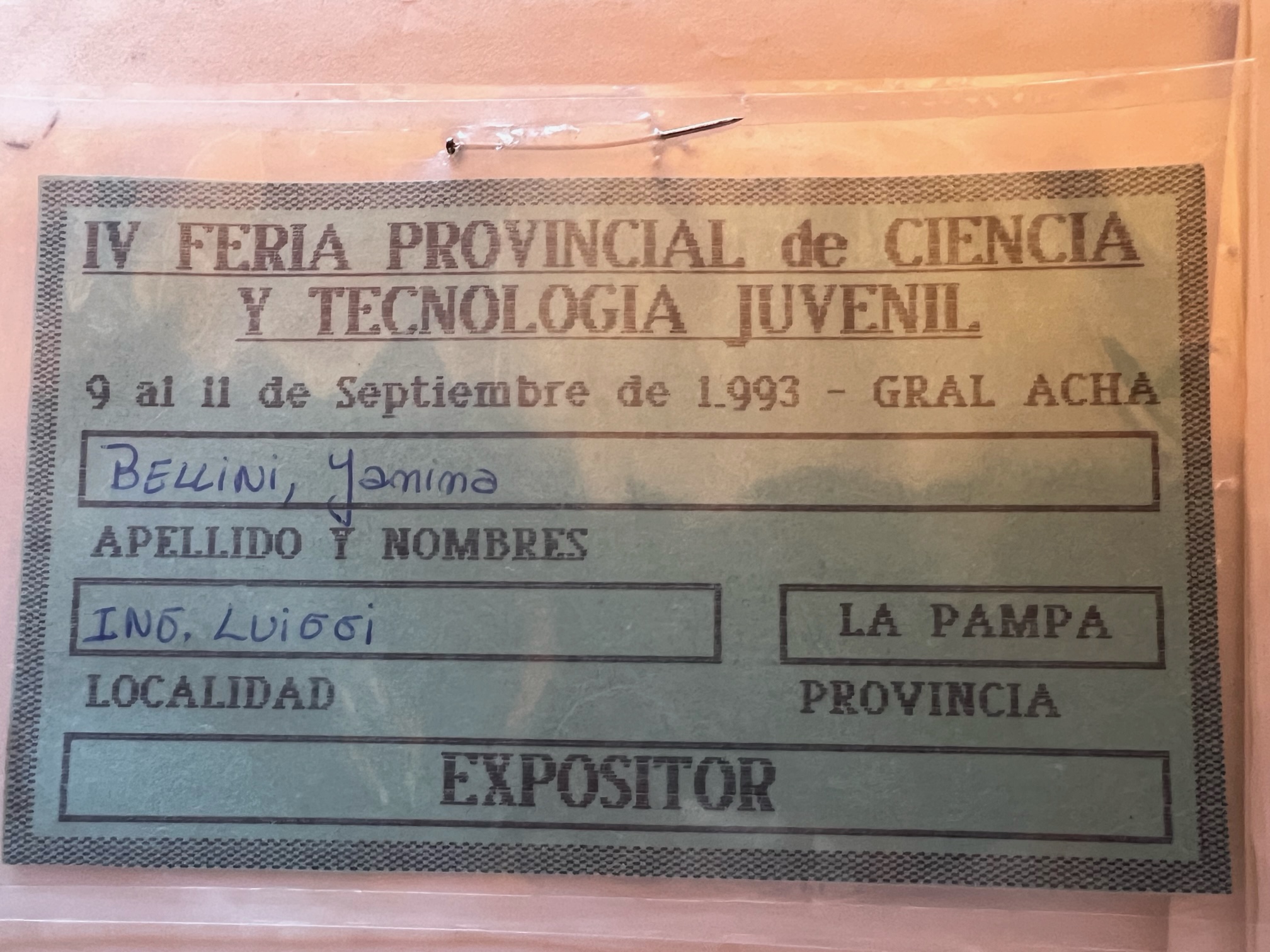Little Scientists
By Yanina Bellini Saibene
January 27, 2023

Every year, science fairs are held in Argentina, where all schools in the country, from primary to tertiary level, can participate by presenting research work and product developments carried out by their students under the guidance of their teachers.
In 1993 we participated with Sebastián Audicio in a project called La Computadora en la Escuela (The Computer in the School). We did the project together because Sebastián and I were studying computers together. For that, we traveled 120km every Saturday from our town, Ingeniero Luiggi, to Realicó, where we had our classes. The families arranged to take care of the transportation for one weekend each.
There was no transportation between the towns, so you had to depend on a car. When it was Sebastián’s family’s turn, his parents or uncle (most of the time) would drive us. We didn’t have a car, so when it was our turn, my parent’s friends would do us the favor of giving us a ride or lending us their vehicle.
I especially remember the transporter who brought the printed newspapers from Buenos Aires and dropped them off in the towns. He drove me in his truck many times.
The project
The school received four computers, but we don’t have teachers trained to use them.
Our project analyzed two possibilities: to add a computer workshop to the counter shift or to use the computer as one of the tools to teach the computing tool and concepts in the different courses.
For the workshop it was necessary to have a person, of legal age 1, to teach the classes. There was no such person in town.
Our proposal was to generate activities for different courses that involved using the computer to solve them.
We present several exercises and activities in geography, mathematics, history, physics, chemistry, cooperativism, and language.
We developed simple programs in QBASIC to implement some of these exercises and activities.
For example, there was a program to graph and solve trigonometric functions. There was also an instruction on using a word processor to summarize and analyze the books assigned for reading.
The Science Fair
Within the country, the science fair has three instances, zonal, provincial and national.
The zonal instance was in Arata, La Pampa. Once again, Sebastian’s uncle drove us to the school where the exhibition took part. Halfway there, the car broke down. We started hitching, but we were using a dirt road, so only a few vehicles passed. Luckily a truck driver stopped and took us to our destination. We were late, but the jury listened to our presentation when we explained the situation. We went on to the State competition.

Our project reached the provincial level. It was the only project of our school to reach that stage that year (and in the entire history of the school up to that moment).

The provincial instance was in Eduardo Castex. The process at the fair was to be in your pre-assigned stand and tell and show your project. In a moment, the jurors arrive at your stand and evaluate your proposal. The evaluation includes listening to your presentation, testing your developments, and asking clarifying questions.

There was another project related to ours, it was called “Informatic Folder,” and it presented the minimum contents for a computer course at school. Seeing the alternative proposal to ours developed in another project was very interesting.
Although our score was good, other projects were better qualified.
It was a beautiful experience. One of the best parts was meeting students from all over the province and from different schools, representing your town, and meeting the other projects.
And, perhaps most importantly, to reaffirm the importance of the topic (teaching computing in the school at the K-12 level) and my choice for what it would be “when I grew up”: a computer scientist and a teacher.
-
I clarify this because I was already teaching computer classes at that time, but since I was 15 years old, I could not be in charge of space within the school. And that is right and correct. ↩︎
- Posted on:
- January 27, 2023
- Length:
- 4 minute read, 676 words